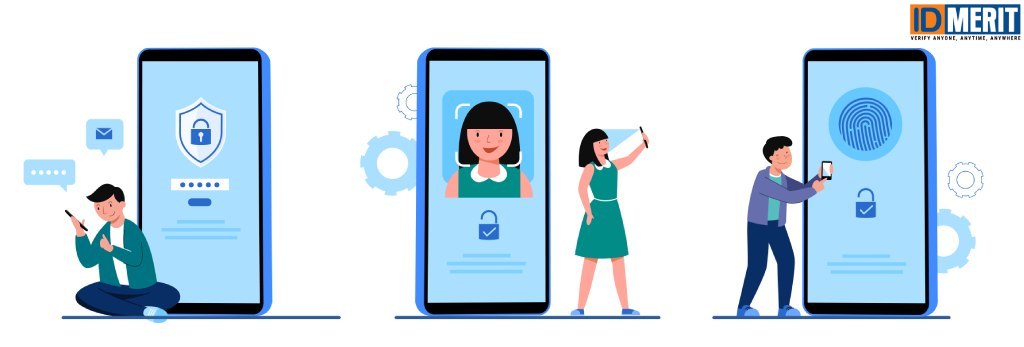In the swiftly changing realm of digital commerce, businesses increasingly recognize the significance of online identity verification as a crucial element in establishing trust, deterring fraud, and upholding transaction security. As technological progress continues, unscrupulous individuals constantly devise new strategies to exploit weaknesses. This blog delves into the significance of online identity verification methods and provides insights into the most effective measures for safeguarding your business.
The Significance of Online Identity Verification
In an era where transactions occur seamlessly in the virtual realm, verifying the identity of individuals engaging in online activities is paramount. Whether opening a new account, purchasing, or accessing sensitive information, businesses must implement robust online identity verification methods to protect themselves and their customers from potential threats.

Types of Online Identity Verification Methods
Various online identity verification methods are employed to establish the authenticity and legitimacy of individuals in digital transactions.
Identity Verification Software:
Advanced identity verification software employs artificial intelligence and machine learning algorithms to analyse various factors, including document verification, facial recognition, and behavioural analysis. This comprehensive approach enhances accuracy and reduces the likelihood of false positives or negatives.
Document Verification:
Document verification involves validating the authenticity of identity documents, such as passports or driver’s licences, by employing advanced scanning and verification technologies. This method ensures that the provided information is legitimate and minimises the risk of fraudulent activities.
Knowledge-Based Authentication (KBA):
KBA involves verifying an individual’s identity by asking predefined questions based on personal information. While this method has been widely used, it has limitations, as personal data can be easily accessible or even obtained fraudulently.
Biometric Authentication:
Leveraging unique biological traits such as fingerprints, facial recognition, or iris scans, biometric authentication provides a highly secure method of online identity verification. Biometrics are difficult to forge, providing a robust defence against identity theft and fraud.
Two-Factor Authentication (2FA):
2FA adds a layer of security by requiring users to provide two different authentication factors, typically something they know (password) and something they have (a mobile device). This method enhances security and mitigates the risks associated with stolen passwords.
By employing a combination of these identity verification methods, businesses can enhance trust, minimise fraud, and ensure secure transactions in the digital realm.
Implementing the Best Practices
Implementing the best ways to verify identities online is crucial for businesses to achieve optimal performance, efficiency, and success. Organisations can streamline their processes, reduce errors, and enhance overall productivity by adopting and adhering to industry-proven standards and methodologies. It involves identifying and implementing strategies, tools, and techniques proven to deliver superior results.
Choose a Multi-Layered Approach:
Combining multiple identity verification methods creates a robust defence against diverse threats. A multi-layered approach ensures that even if one way is compromised, others remain in place to safeguard your business.
Stay Updated with Technology:
As technology evolves in this digital age, so do the tricks applied by cybercriminals. Regularly update your identity verification systems to incorporate the latest advancements and stay one step ahead of potential threats.
Prioritise User Experience:
While security is crucial, it’s equally important to prioritise a seamless and user-friendly experience. Complex and cumbersome verification processes may deter customers. A balance should always be maintained between security and convenience.
Compliance with Regulations:
Adhere to relevant regulations and industry standards governing online identity verification. Observation protects your business from legal consequences and instil confidence in customers regarding the security of their personal information.
Conclusion
The implementation of effective online identity verification methods is imperative for digitally savvy businesses. With a commitment to excellence and a focus on providing advanced technologies, IDMERIT offers a reliable and secure platform for online identity verification. If you need support for online identity verification compliance in the UK, turn to IDMERIT, your reliable online verification provider specialising in regulatory compliance and identity verification solutions.
Online identity verification is not just a security measure; it’s a commitment to building a resilient and reliable foundation for the future of digital commerce. Connect with us today and experience the expertise. Collaborating with IDMERIT enables businesses in the UK to leverage our expertise and state-of-the-art solutions, facilitating the swift implementation of digital identity verification.



